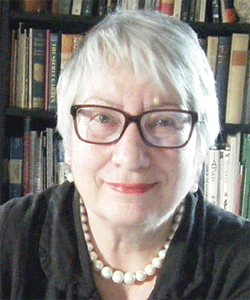Uta Frith
 University College London and University of Aarhus
University College London and University of Aarhus
William James Fellow Award
An internationally renowned developmental psychologist, Uta Frith has pioneered much of the current research into the cognitive neuroscience of autism and dyslexia. In fact, she is regarded as one of the first scientists to recognize autism as a condition of the brain rather than the outcome of detached parenting, a conclusion she argued for persuasively in her seminal 1989 book Autism: Explaining the Enigma.
In her work with Alan Leslie (now a professor at Rutgers University) and Simon Baron-Cohen (now a professor at the University of Cambridge), Frith pioneered the idea that autistic people lack a theory of mind — the ability to attribute mental states to oneself and others and to intuit what others may be thinking. She has also proposed the theory that individuals with autism have “weak central coherence,” leaving them highly capable of processing details but worse than other individuals at integrating information from many sources.
Additionally, Frith has been a major force in destigmatizing dyslexia, showing it to be separate from environment and intelligence. Her work on reading development and spelling has been highly influential. Most recently, Frith has been championing the advancement of women in science, fostering support networks for female researchers who juggle family and career. She has worked tirelessly to close the divide between neuroscientists, teachers, and policymakers, calling for a common language to bridge lab-based experiments and classroom practice. Ultimately, her goal is to help improve the quality of life of those with developmental disorders by a better understanding of the challenges they face.





APS regularly opens certain online articles for discussion on our website. Effective February 2021, you must be a logged-in APS member to post comments. By posting a comment, you agree to our Community Guidelines and the display of your profile information, including your name and affiliation. Any opinions, findings, conclusions, or recommendations present in article comments are those of the writers and do not necessarily reflect the views of APS or the article’s author. For more information, please see our Community Guidelines.
Please login with your APS account to comment.